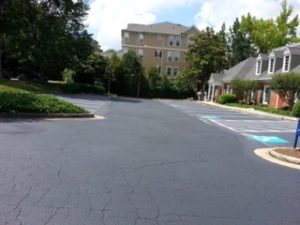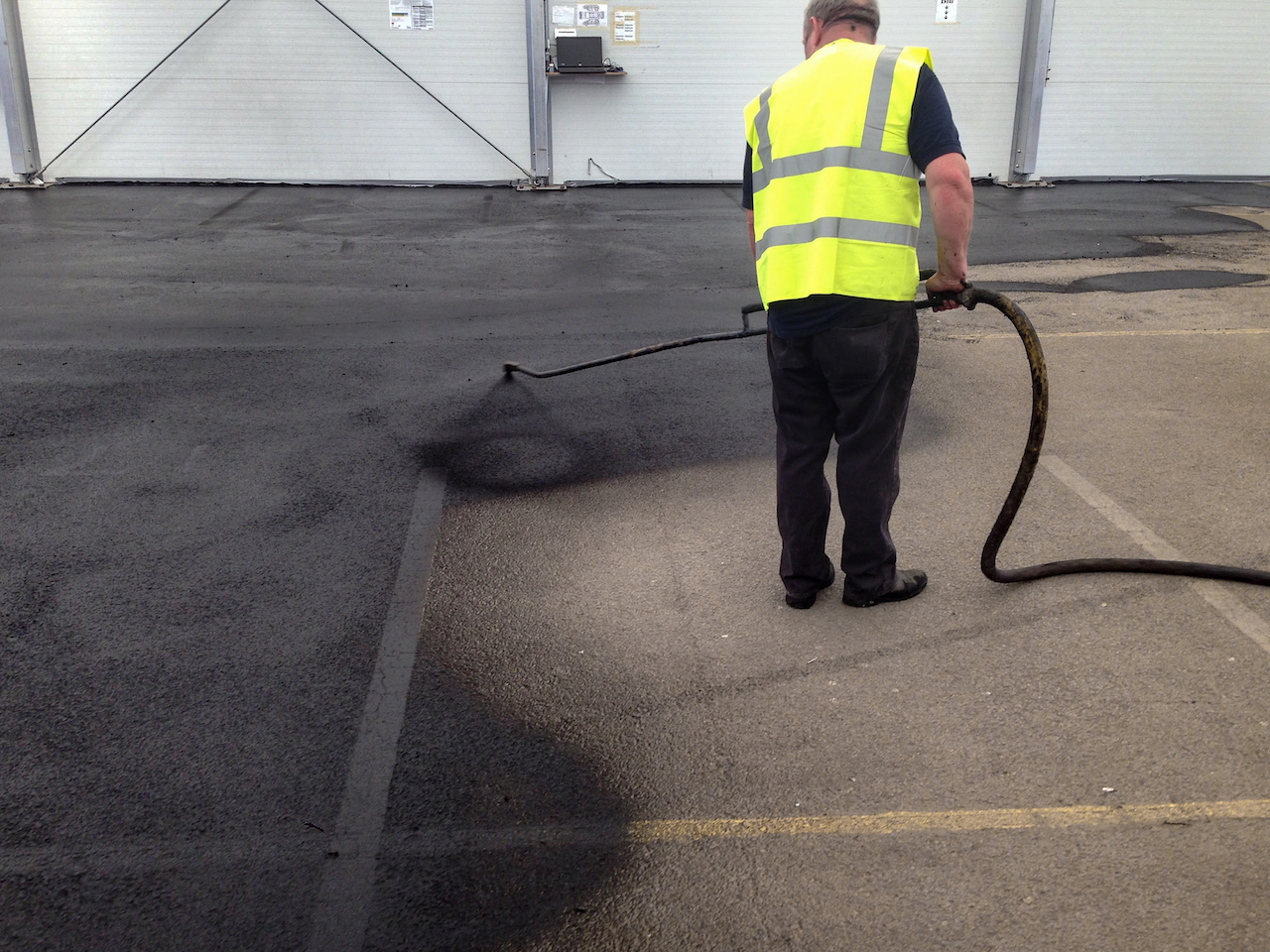
Asphalt Sealcoating | Safe or Dangerous?
What Did the USGS Study Find?
Two researchers at the USGS collaborated with the water quality management department of Austin, Texas, to investigate the level of polycyclic aromatic hydrocarbons in the sediments of Barton Springs. Commonly referred to as PAHs, polycyclic aromatic hydrocarbons are organic chemical compounds that typically find their way into the environment due to a source of incomplete combustion. Auto exhaust, smoking tobacco, energy production, industrial processes, forest fires, food preparation and volcanic eruptions are just a few of the sources of PAHs found in the soil, air and water. When researchers found PAHs in the water sediments at Barton Springs, they declared that the source was runoff from a sealcoated parking lot that was located uphill from the water at a nearby apartment complex. However, additional studies have found that this conclusion was erroneous. Furthermore, there is absolutely no evidence that sealants pose a health risk to humans. They have never been linked to even a single case of cancer, and sealants are not classified as a human carcinogen by the International Agency for Research on Cancer.
What Else Should I Know About Sealants?
Every reputable sealcoating contractor knows that the specifications issued by the sealant’s manufacturer should be followed faithfully. Professional paving maintenance contractors adhere to these specifications and establish additional best practices. The following list covers several practices that are probably adhered to by your contractor.
1. Do not apply sealcoat if the forecast calls for significant rainfall during the 48 hours following the application.
2. Make sure that temperatures are at least 60 degrees Fahrenheit and increasing throughout the process.
3. Keep traffic from accessing a newly sealed pavement for a minimum of 12 hours.
4. Require workers to wear appropriate clothing, including full-length pants, long-sleeved shirts and gloves. Depending on the weather conditions and application method, face shields and hats may be advisable.
5. Take the appropriate steps to avoid overspray. Protect vegetation, sidewalks, walls and other structures from the sealant.
6. Limit the application to the number of coats that are appropriate for each specific pavement. Most pavements will need two full coats, but some pavements will be fine with one full coat and a second coat in high-traffic areas. However, other pavements may need a third coat in a few spots.
7. Maintain all equipment so that it is operating at peak efficiency. Well-maintained equipment will be far less likely to leak or clog, but it will also make it much easier to apply the sealant with precision.
8. Make sure that all workers are properly trained to perform their tasks efficiently and safely.
The professionals at MH Greeson have been sealcoating Atlanta pavements for years, and we have stayed current on all the various studies and reports. We are based in Marietta, but serve the entire metro Atlanta area. We know that sealants are perfectly safe for our workers, our customers, and the public. If you need any type of asphalt maintenance, including sealcoating, crack repairs, parking lot striping, pothole repairs, pavement markings, asphalt overlays, bollards and traffic signs, contact us for a free quote by submitting the online form. If you prefer to call, you can reach us at 770-335-2983.




